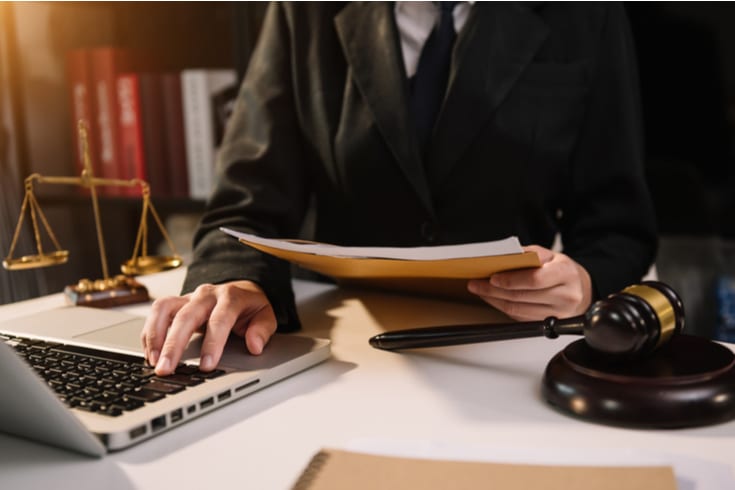How to Write and Process a 'Victim Report' and Other Documents in Cases of Defamation and Slander

Recently, we have seen an increase in news articles about defamation on the internet, including on social media and anonymous bulletin boards. This is not just a matter of people going too far in their discussions, but rather, there are many malicious cases where individuals persistently post content that damages the reputation of others over a long period of time. Even celebrities and influencers have publicly announced that they have been victims of such defamation.
This kind of malicious defamation could potentially be considered a crime. In this article, we will introduce several crimes that could be established in response to defamation, and provide a detailed explanation on how to report these crimes to the police, including filing a criminal complaint or a damage report.
Crimes Committed Against Defamation

The content of defamation on the internet varies widely, and not all actions necessarily constitute the same crime. When filing a damage report for defamation, it is necessary to first consider which crime the damage you have received falls under.
Defamation
The first crime to consider is defamation (Article 230 of the Japanese Penal Code). Defamation can be a reason for a civil claim for damages, but it is also subject to criminal penalties.
Article 230: A person who publicly indicates a fact and damages the honor of another person shall be punished with imprisonment for up to three years or a fine of up to 500,000 yen, regardless of whether the fact is true or not.
e-gov Legal Search
In order for defamation to be established, the following requirements must be met:
- Publicly
- Indicating a fact
- Damage to a person’s honor
“Publicly” means that it was done in a state where an unspecified or large number of people can view it. Defamation on sites and SNS, etc. on the internet that are exposed to the eyes of an unspecified number of people basically meets this requirement.
“Indicating a fact” means showing specific factual content, not defamation, insult, or abusive language. Whether the content is true or false is not an issue, and even groundless rumors meet this requirement. However, even if it cannot be said that a fact was indicated, it may fall under the crime of insult, which will be explained later, so caution is necessary.
“Damage to a person’s honor” means lowering a person’s social evaluation. Even if it is defamation, if it remains a “criticism” or “review”, these are not subject to the judgment of the court in relation to “freedom of expression”, and criminal punishment cannot be imposed. Whether or not it lowers a person’s social evaluation is judged based on the normal reading and attention of general readers in case law.
For more details on defamation, please refer to the following separate articles from our firm.
Related article: Legal Issues with Real Name Reporting of Arrest History and Criminal Records – Is it Defamation or Infringement of Privacy Rights?[ja]
Related article: Can expressions such as “drug suspicion” and “antisocial suspicion” be considered defamation?[ja]
Insult
Even if there is no indication of a fact, the crime of insult (Article 231 of the Japanese Penal Code) may be established. According to case law and common theory, the difference between the crime of defamation and the crime of insult is determined by the presence or absence of an indication of a fact.
Article 231: A person who publicly insults another person, even without indicating a fact, shall be punished with detention or a petty fine.
e-gov Legal Search
Related article: What is the infringement of honor feelings (insult)? Explanation with examples of weekly magazine reports[ja]
Intimidation
There are some malicious defamations that make the victim feel in danger, such as “I will kill you” or “I will expose your affair”. In relation to such defamation, the crime of intimidation (Article 222 of the Japanese Penal Code) may be established.
Article 222: A person who intimidates another person by announcing that he/she will harm the life, body, freedom, honor, or property of the person shall be punished with imprisonment for up to two years or a fine of up to 300,000 yen.
e-gov Legal Search
The crime of intimidation is established when a person announces that he/she will harm the life, body, freedom, honor, or property of another person. The content of the announcement of harm is considered sufficient if it is enough to frighten an ordinary person.
Related article: Defamation on the Internet and the Crime of Intimidation[ja]
How to File a Criminal Complaint and Report of Damage for Defamation

If defamation on the internet could potentially constitute a crime, you will need to report it to the police. The methods for doing so include filing a criminal complaint and submitting a report of damage.
Criminal Complaint
A criminal complaint is a declaration of intent by a victim of a crime or similar party to report the facts of the crime to an investigative agency and seek punishment for the perpetrator.
Investigative agencies are not obligated to investigate every case, but can freely initiate investigations when they suspect a crime has been committed. However, if a criminal complaint is filed and accepted, the investigative agency is obligated to conduct an investigation, create a case record, and submit it to the prosecutor’s office.
Defamation is classified as a “complaint-required crime,” meaning that a public prosecution cannot be initiated without a criminal complaint. Therefore, if you want an investigative agency to investigate, it is essential to file a criminal complaint.
It is said that police tend to avoid accepting criminal complaints because accepting them obligates them to investigate. Especially in cases of defamation, it can be difficult to determine from the evidence and other information provided by the victim whether defamation has occurred, so considerable ingenuity is required to get a criminal complaint accepted.
Generally, it is more likely that a criminal complaint will be accepted if it is filed by a lawyer on behalf of the victim rather than by the victim themselves. If you wish to file a criminal complaint, we recommend consulting with a lawyer as soon as possible.
How to Submit a Report of Damage and How to Write It
A report of damage is a document in which a victim reports to an investigative agency that they have suffered damage due to a crime. Unlike a criminal complaint, it does not include a declaration of intent to seek punishment for the criminal.
However, unlike a criminal complaint, receiving a report of damage does not obligate an investigative agency to investigate, so the likelihood of an investigative agency accepting it is relatively high. Therefore, if filing a criminal complaint is difficult, submitting a report of damage first can be an option.
● Timing of submitting a report of damage
The longer the time since the damage occurred, the more difficult it becomes to collect evidence, so it is desirable to submit a report of damage as quickly as possible.
● Submission method
You are free to choose which police box or police station to submit to, but generally, you go to the police station that has jurisdiction.
There are designated forms available at police boxes and police stations, so you fill in the necessary information. The content to be written varies depending on the incident, but generally, you write the following information.
[Victim’s personal information]・Name
・Contact information
・Address
[Details of the damage]
・Information about the perpetrator (such as SNS account name)
・Date and time of the damage (date and time when the defamatory comment was posted)
・Details of the damage (content of the defamatory post, etc.)
・Content of the damage (content of the damage suffered due to the defamation)
It is important to take screenshots of defamatory posts and save them. As certain know-how is required for such evidence preservation methods, it is advisable to consult with a lawyer who specializes in internet-related troubles.
Related article: Can contributors be identified after the deletion of a defamatory article?[ja]
Cases Where the Police Will Take Action

However, just because you’ve taken the above steps, it doesn’t necessarily mean that the police will take action.
This is due to the principle of non-intervention in civil matters, which states that the police should not intervene in civil legal matters. Although this principle is not explicitly stipulated, it is widely recognized in academia and practice. The police are an institution responsible for maintaining public safety and order, and should not be involved in civil legal matters that are not directly related to the maintenance of safety and order.
Furthermore, the police need to prioritize investigating urgent incidents involving human life, so even if the police do take action, a swift resolution cannot be expected.
Therefore, the cases in which the police will actively take action against slander and defamation, which are private disputes, are limited.
On the other hand, if an online post falls under the crimes of intimidation and others mentioned above, there is a high possibility that the police will take action to prevent the crime from happening.
Consider Consulting with Defamation Hotlines or Telephone Counseling Services

Defamation Hotline
The Defamation Hotline is operated by the General Incorporated Association Safer Internet Association, which is run by volunteers from internet companies. They provide notifications to encourage the removal of online defamation in accordance with the terms and conditions of the site where it is posted.
Reference: General Incorporated Association Safer Internet Association[ja]
Telephone Counseling Service for Cybercrimes
Each prefectural police department has established a counseling service as part of their measures against cybercrimes. We recommend that you find the counseling service of the prefectural police department where you live from the site below and consult with them, or try calling the nationwide common short dial ‘#9110’.
Reference: List of Cybercrime Counseling Services at Prefectural Police Departments[ja]
Conclusion: If You’re Worried About Filing a Complaint for Defamation, Consult a Lawyer
While utilizing the above-mentioned consultation services can be beneficial, it can be quite challenging to go through the process of filing a criminal complaint or a damage report on your own. Therefore, by consulting with a lawyer who is well-versed in legal measures against defamation issues, you can resolve the problem more quickly and reliably.
Introduction to Our Firm’s Measures
Monolith Law Office is a legal office with high expertise in both IT, particularly the Internet, and law. In recent years, overlooking information related to reputational damage and slander spread on the Internet can lead to serious harm. Our firm provides solutions for managing reputational damage and online crises. Details are provided in the article below.
Category: Internet





















